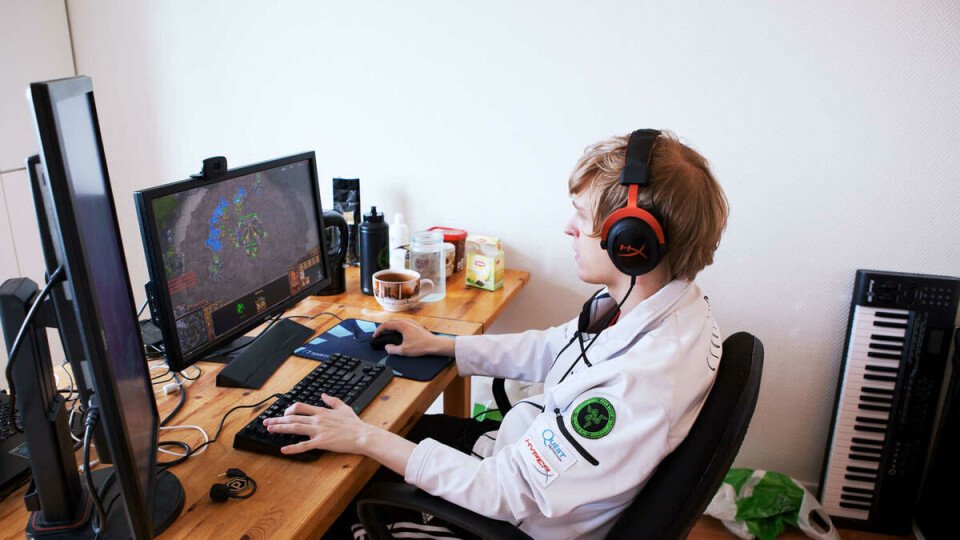
Dropout and pro gamer
While his friends stayed in university, Jens «Snute» Aasgaard dropped out to play computer games on a professional level.
– For me the biggest challenge is to keep fit, exercise and eat healthy when you are out traveling
– When I’m in tournaments a lot of people recognize me. They know who I am because they follow the sport, of course. But it does happen that I’m recognized in the streets or at the airpot.
Jens Waller Aasgaard (25) got his first taste of stardom at an early age. But he is no football player, cross country skier or cyclist. He is a professional e-sport player – he makes a living being good at computer games.
– There was a tournament recently where several contestants became dollar millionaires after winning first place. One of them is 17 years old. That's pretty cool, says Jens.
Jens, better known as «Snute,» is one of very few in his line of work in Norway. For three years, playing Starcraft 2 has been his fulltime job. In Norway, few people have even heard the word «e-sports». In other countries, it’s already a million dollar industry. South Korea has TV stations dedicated to showing e-sports, and got them in the early 2000s. The best players are idols on par with rock stars and top athletes. In Sweden, the national broadcaster has been showing e-sports for a while already.
Weird science: Game of Thrones is realistic
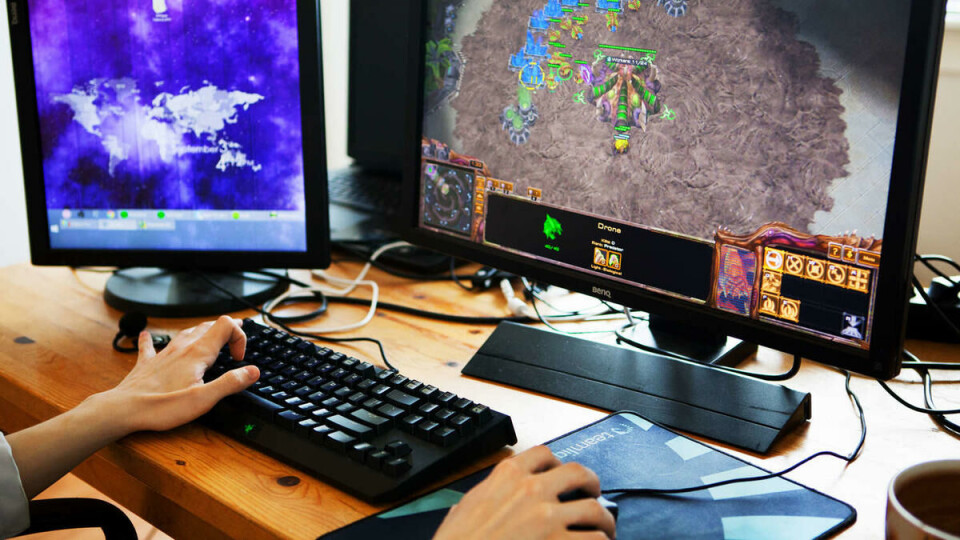
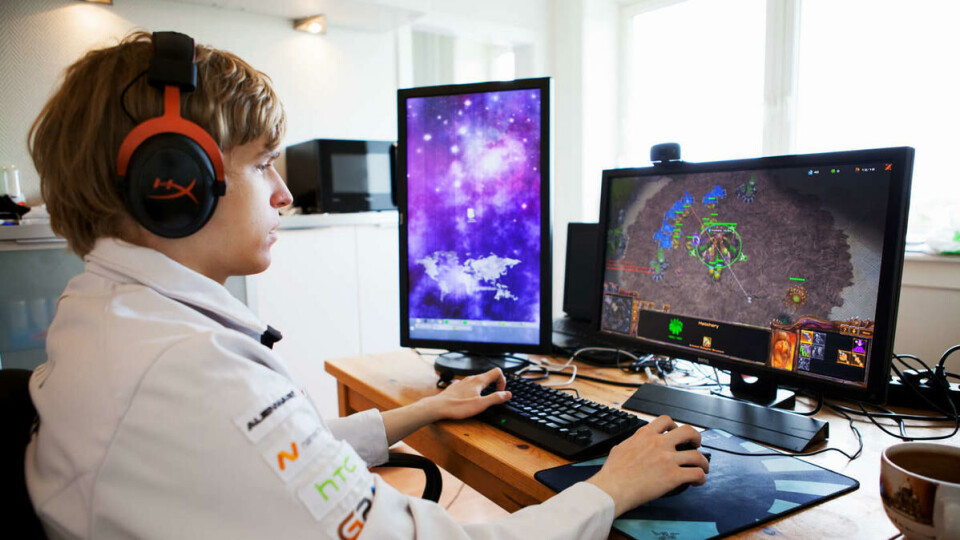
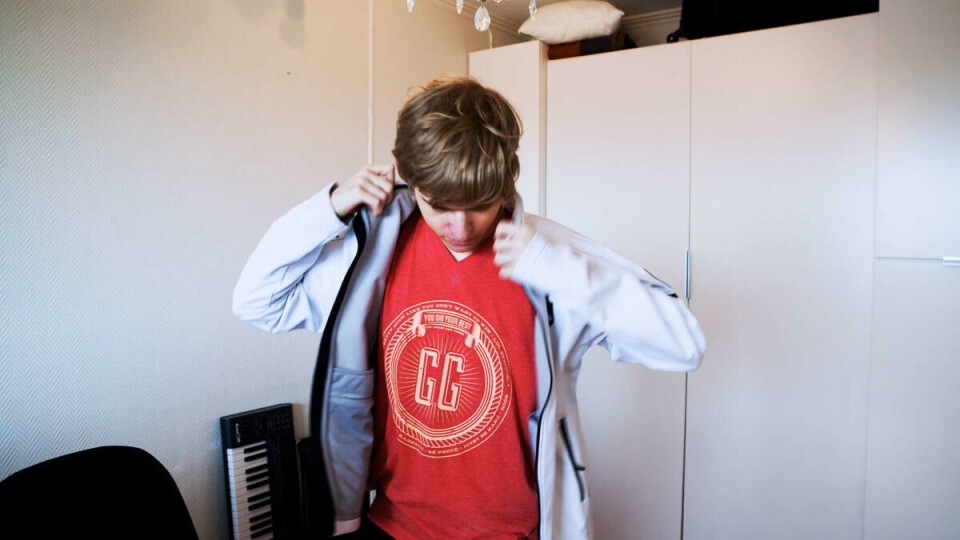
– My parents weren’t exactly excited that I was quitting university to become a pro gamer
Tough choice
The high cost of living makes Norway a challenging place to for a pro gamer. Jens was in a music technology program at the Norwegian University of Science and Technology in 2012, before he decided to chance becoming a professional e-sports player. It was a tough choice.
– I had already left a lot of things behind, moving to Trondheim from Oslo. So leaving University after a few months seemed strange. That made it a tough choice, and my parents weren’t exactly excited that I was quitting to become a pro gamer, Jens explains.
Despite his parents' scepticism, he has never regretted the decision to drop out of university. He has gotten to travel around and competed in countries like Russia, China, Germany, Poland, France, South Korea and the United States – to name a few. He travels for at least 60 days a year and goes on tournaments abroad at least twice a month.
– I don’t regret my choice. It would have been nice to stay in university as well, but I've got many fond memories of places I've been and people I've met. I wouldn’t have got to experience winning major tournaments in front of huge crowds otherwise, he says.
Uncertain future
Several computer games have professional tournaments dedicated to them. StarCraft II, Jens’s game, is a strategy game. It can be described as a mix of chess, poker and tennis, according to Jens. The key is to think strategically, to be able to read your opponent and to react quickly.
To become a top player, Jens spent countless hours behind the keyboard, but he spends time keeping in shape as well.
– It is important to keep fit; otherwise you become tired very quickly. When you travel a lot it's easy to get sick, maybe catch a cold as I have now, or get jetlagged. For me the biggest challenge is to keep fit, exercise and eat healthy when you are out traveling, – and to get enough sleep, he says.
A career as an e-sport player rarely lasts long; very few manage to stay at a competive level as reaction time deteriorate toward the late twenties. Jens recentyl turned 25, but is not overly concerned about the future.
– There are more opportunities in e-sports. For example, you can be a commentator when you’re finished playing, or you can work for tournament organizers in different ways. I'm nor sure what I want to do right now, but I plan to pick up my studies at some point. But I am gaming for at least one more year, and we’ll see after that.

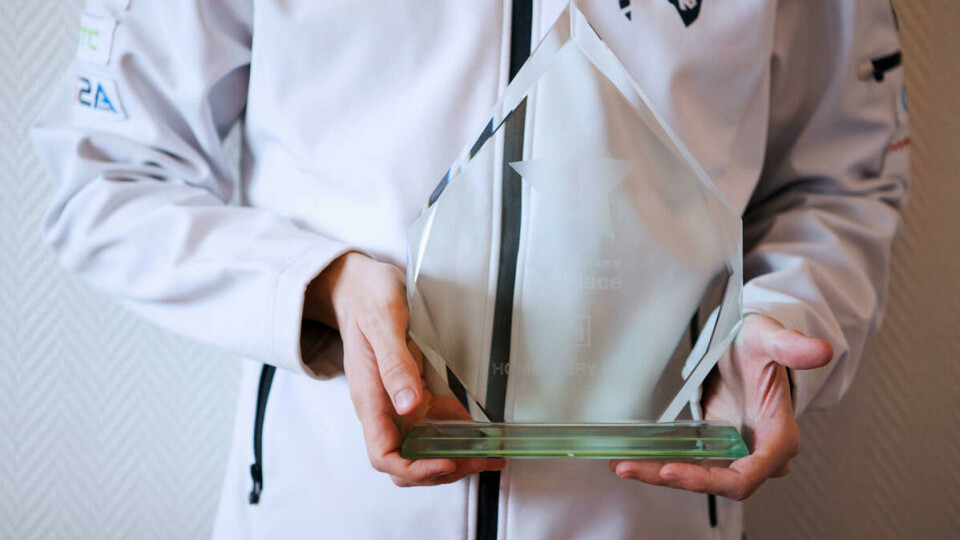
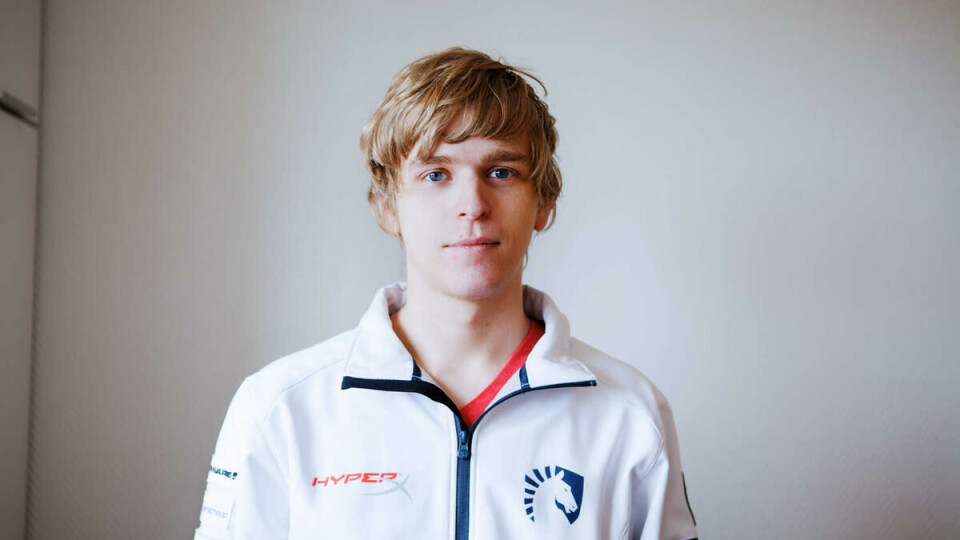
World leading
Stein Wilmann is a veteran in Norwegian e-sports. He is currently responsible for e-sports at the website gamer.no. They host the «Telenor league» in cooperation with the telecommuncations corporation Telenor. It is running all year and Norwegian teams and players can compete in various games. He is optimistic about the future of e-sports in Norway.
– Norway is catching up to Sweden in e-sports. They have more international players, but they lack a stable league that runs all year where anyone can compete regardless of level. In five years, Norway will be a world leader when it comes to e-sport participants relative to its population. In ten years, we will be a world leader in infrastructure, he predicts.
There is little doubt that e-sports is a growing field in Norway. A school in Buskerud recently opened an e-sport program, whcich quickly became the schools most popular. Wilmann is nott concerned about the future of the pro gamers themselves, and doesn’t believe the industry fosters future unemployment in any greater degree than traditional sports.
– It is easier to combine e-sports with education than sports. Besides, there are plenty of former Norwegian e-sports players who got regular jobs as their careers ended. Ultimately it is up to each individual to take responsibility for their own future, he concludes.






























